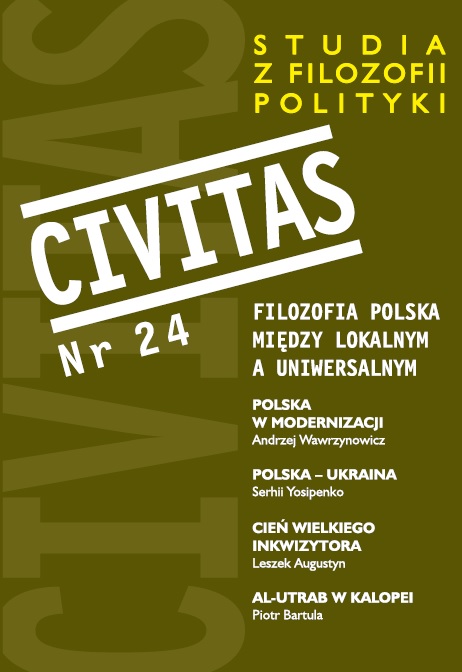Logic and Metaphysics in Vilnius during 16th–18th Centuries: The Most Important Sources of Vilnius Libraries
Logic and Metaphysics in Vilnius during 16th–18th Centuries: The Most Important Sources of Vilnius Libraries
Author(s): Živilė PabijutaitėSubject(s): Philosophy, History of Philosophy
Published by: Instytut Studiów Politycznych PAN
Keywords: Lithuanian philosophy; Vilnius University; history of logic; history of metaphysics;
Summary/Abstract: The aim of the article is to present the results of research conducted as part of the project Polonica Philosophica Orientalia: namely, to give an overview of the most important logical and metaphysical treatises (both manuscripts and printed editions) written in Vilnius between the sixteenth and eighteenth centuries that are currently accessible in some of the Vilnius libraries. Although the research focused primarily on the Vilnius University Library and its resources, some interesting results were also obtained while researching the Wróblewski Library of the Lithuanian Academy of Sciences. Most sources containing information about the state and the nature of metaphysical and logical investigations conducted in Vilnius during the period discussed are the manuscripts of lecture courses delivered for the students of Vilnius University and other schools. The analysis of those manuscripts has revealed a strong and long-lasting influence of scholastic Aristotelianism in both logic and metaphysics. Namely, up to the mid-eighteenth century, the main questions discussed in logic were Aristotelian syllogism, the square of opposition and the medieval topics of semantical antinomies, modalities and supposition theory, while investigations into metaphysical issues were limited to commentaries on Aristotle’s theoretical treatises without seriously questioning their main theses. In the second part of the eighteenth century, a moderate shift towards subjectivism and psychologism was observed in both of these disciplines. This was influenced by modern epistemologists (George Berkeley, John Locke and others). Logicians and metaphysicians of Vilnius University developed an interest in the topics of human understanding and cognition. However, this shift did not take a radical form – while the majority of eighteenth-century authors sought a combination of scholastic and modern ideas, a critical and even hostile stance towards modern philosophy and science is still noticeable in many of the analysed sources. An overview of the research supported by statistical data is followed by some preliminary remarks on how and where investigation of this topic might be continued in the future.
Journal: Civitas. Studia z filozofii polityki
- Issue Year: 2019
- Issue No: 24
- Page Range: 117-134
- Page Count: 18
- Language: English

